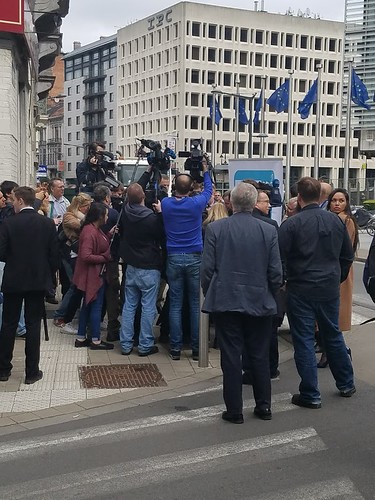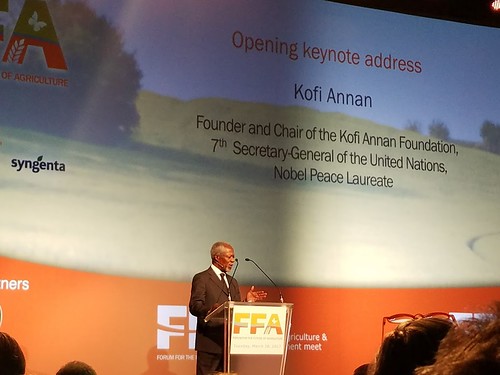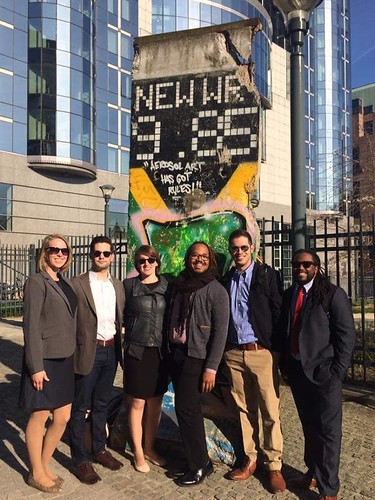The Right Time to Visit the EU
By Sheena R.
April 24, 2017
“You definitely came to the EU at the right time…” This somewhat simple phrase became the underlying theme during the University of Missouri’s study abroad program in Brussels. Along with 12 other students from a variety of disciplines, I chose to spend my spring break learning about the policies and institutions of the European Union, an organization very much at a crossroads.
But were we really there at the right time? Sure, we were there as the letter triggering Article 50 of the Treaty of Rome was delivered to EU Council President Donald Tusk, starting the negotiation process as the United Kingdom leaves the EU. We were there as millions of Syrian refugees are fleeing their home country, hoping to escape war and settle in a more peaceful Europe. And we were there as Marine La Pen campaigns in France, promising that, if elected president, France would be the next to leave the European Union.

It very well was a good time to be there to see the complexity of the EU in person, and see just how difficult collaboration is within an organization that has supranational authority, yet is not a federation. The EU is not the “United States of Europe,” but rather a highly bureaucratic umbrella organization that at times circumvents the sovereignty of the 28 (soon to be 27) member states.
However, the current issues facing the EU are not new. In fact, since its inception, the EU has struggled with its identity and its connection to European people. Learning about the EU provided an opportunity to see firsthand the importance of communication in the public sphere. A week meeting with EU officials, policymakers and stakeholders improved my understanding of the EU. I slowly began to grasp what it does, how it works and how it can improve as a global organization.
But few people have the opportunity to devote a day, let alone a week, to have these important discussions. Thanks to Mizzou study abroad, my colleagues and I got to ask tough questions and begin to understand the complexity of collaboration in a world where nationalism and individualism are in the spotlight.

We role-played the Greek debt crisis in an attempt to figure out the tension between saving a failing EU member state while protecting the self-interests of other EU member states. We heard from Kofi Annan, former secretary general of the United Nations, about the collaborative role Europe can play in feeding the world’s population. We met with communications expert and director of the Mizzou journalism program in Brussels Garreth Harding, who explained that a lack of European media and the emphasis of “bureaucratese” leaves the European people in the dark as to what the EU is doing. And we met with European Parliament minister Jan Zharadil, who explained the potential for European trade if America opts to leave international trade agreements.

Through these discussions, globalization, collaboration and nationalism became more than buzzwords or political science jargon. They became dynamic concepts that revealed the issues of international relations and how they are often much bigger and more difficult to tackle than they are portrayed in the media.
Turns out, we did arrive in Brussels at the right time and, as the world continues to change, it will always be the right time for students to travel to new countries and learn about policies and institutions at the global level.
About the blogger
Sheena R. is studying abroad on the Policies and Institutions of the European Union in Brussels, Belgium.